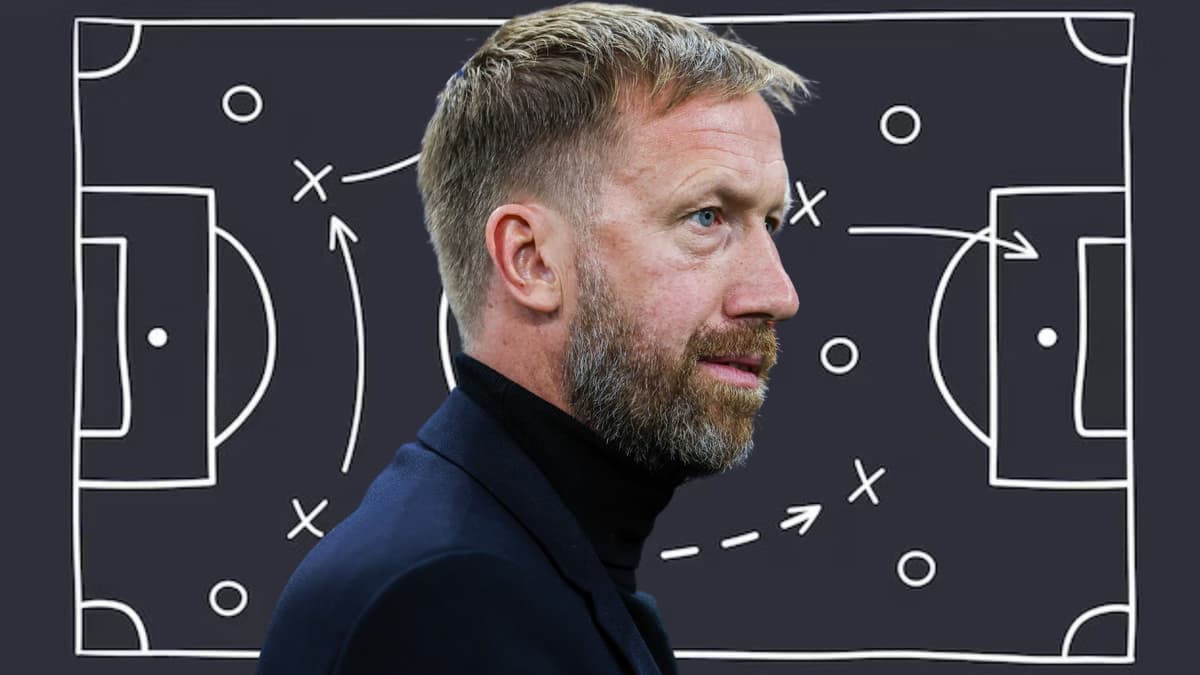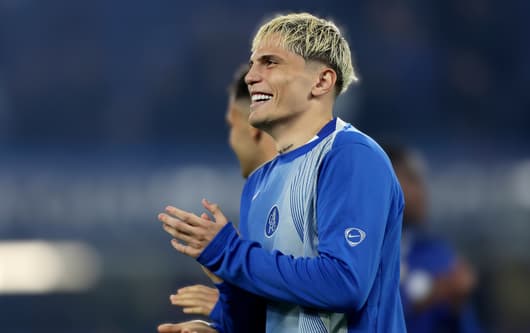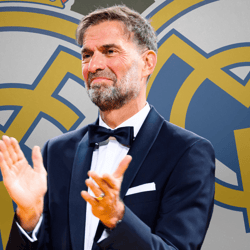-
Nieuws
- 49 minutes ago
Graham Potter is getting it RIGHT at Chelsea - he only needs one thing

It’s been a difficult season at Chelsea, to say the least. Todd Boehly’s takeover in May led to a summer of heavy spending, with manager Thomas Tuchel jettisoned soon after the summer transfer window ended.
In came Graham Potter in October, with Chelsea already on fewer than half the points of league leaders Arsenal. Things got off to a promising start, as he remained unbeaten after nine matches, winning six. Tougher tests were in store thereafter, though, and the Blues fared poorly as they lost four of their five matches before the World Cup.
And then came the January transfer window. Boehly sought to help out by throwing yet more money at the problems – and lots of it. Chelsea spent well over €300 million to make six immediate additions to their squad as well as signing a couple of players for the future.
TRANSFER NEWS: Chelsea’s first summer sale? Potter hints €73m star will leave
Naturally, after this unprecedented transfer spending, expectations rose among Chelsea fans. However, results did not change. By the time the Blues beat Leeds 1-0 on 4 March, they had won just two of their last 17 fixtures.
A hard-fought victory over Dortmund in the Champions League followed, easing the pressure on Potter, yet it could quickly ramp up again in the case of even a couple of adverse results. Even in this case, though, he needs more time.
MORE: Thomas Tuchel's Chelsea sack reasons revealed in an email
Unprecedented squad dynamics in a hectic schedule
The first thing to consider about Potter’s situation at Chelsea is that he has to work with an absolutely massive squad. While the Blues spent a lot of money on signings, they did not care to ensure that their squad remained balanced by moving players on. As a result, Potter is juggling over 30 professionals.

Of course, the new arrivals (which also include Joao Felix, who does not show up on this list by virtue of being on loan) expect to see a good deal of game time, but the trouble is that you cannot throw seven new players into a new team and expect them to perform immediately.
It would then be fair to question Chelsea’s transfer policy. Yes, they have signed some very good players, but in many cases have done so by spending exorbitant sums of money that can only be justified if the player does incredibly well. As a result, this builds pressure on them.
Coming back to the main subject of this piece – Potter cannot entirely be faulted for this. He is not in charge of Chelsea’s transfer business and has indicated in press conferences that he did not have a major role to play in their January business. He was saying in code that he does not want all the players he has been assigned.
Making his problem more accute is that all of this has happened in the midst of possibly the most congested season in football history. Chelsea have been playing a game every four days effectively since the Premier League restarted after the World Cup break. That has left the manager with next to no time to slow things down and properly familiarise the squad with his preferred tactics.
Simplified tactical set-ups
Potter’s Brighton & Hove Albion side were renowned for their intricate possession play and unwavering playing style even against higher-quality opposition. Obviously, this required a high level of understanding of roles among the players as well as tactical intelligence to enable Potter’s famed formation changes to be successful.
The 47-year-old Englishman has not had time to get to this stage with the Chelsea squad, though. To his credit, he has adapted by employing more simplified tactical set-ups where players have been given freer roles.
Most often, Chelsea have started in a 4-2-3-1 formation of late. Enzo Fernandez has become a mainstay in midfield, whilst Felix and Kai Havertz are regularly featuring in the central attacking roles and starting to form a connection. On occasion, Potter has added an extra centre-back and moved to a back-three.
Given the quality of the players Chelsea have at their disposal, their performances in this simple and relatively free tactical set-up have been good. In fact, a look at their underlying numbers indicates that they are currently better than they have been at any point previously this season.

Results have not always gone their way, though, and there are various reasons for that. The biggest one among those is some shocking underperformance in front of goal. At the time of writing, they have played 11 matches in the league and Champions League since the turn of the year, scoring a total of 5 goals from 14.4 xG generated in them.

Poor finishing is a part of the story, but that alone cannot explain such a massive margin of xG underperformance. There definitely is an element of misfortune involved that cannot continue for much longer, so better results will come Chelsea’s way soon if they can sustain this level of performance.
Verdict
It should be noted that Potter’s Brighton were also notorious for underperforming in front of goal relative to xG, but whether that is a mere coincidence or indicative of a greater concern is a much more complex debate. Either way, this level of xG underperformance is unlikely to persist.
Ultimately, Potter cannot be judged on the way his side plays this season given the circumstances they are in. He was handed a five-year contract when he signed so the owners were clearly prepared to commit to a long-term project under him, and if they are to distinguish themselves from the last regime, they must stick with him.
Potter seems to be getting it right. All he needs is time.



















